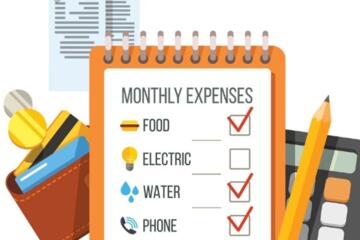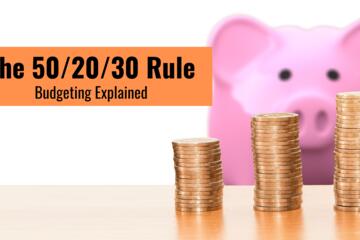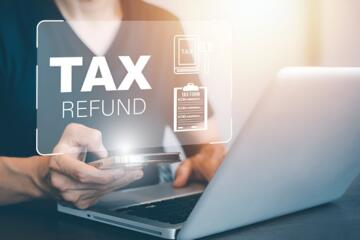Tax refunds can feel like found money — and that’s exactly why they often get spent quickly and without a plan. According to studies, many people use their refund for impulse buys, temporary pleasures, or unplanned upgrades. But here’s the truth: this is a rare chance to move the needle on your finances.
Whether your refund is $200 or $2,000, what you do with it can make a real difference. The smartest moves don’t just feel good now — they pay off for months or even years to come. Let’s explore the best ways to make the most of your tax refund.
1. Build or Boost Your Emergency Fund
Why it’s smart:
Life happens — cars break down, jobs shift, and unexpected bills arrive. An emergency fund helps you stay financially stable without turning to credit cards or loans.
How to start:
-
Aim for a $500–$1,000 starter fund if you’re new to saving.
-
Already have a fund? Top it off to cover 3–6 months of expenses.
-
Use a high-yield savings account to keep it separate and growing.
Pro Tip: Automate monthly contributions after the refund to keep building momentum.
2. Pay Down High-Interest Debt
Why it’s smart:
Credit card interest can quietly eat away at your finances. Putting your refund toward your highest-interest balances helps you save money in the long run.
Steps to try:
-
List all your debts by interest rate.
-
Start with the highest rate (often a credit card).
-
Make a lump sum payment and reduce your minimum going forward.
Helpful tip: Even a few hundred dollars can shave off months of payments.
3. Start or Boost a Retirement Account
Why it’s smart:
The earlier you invest in your future, the more time your money has to grow — thanks to compound interest.
Ways to do it:
-
Open or contribute to a Roth IRA or traditional IRA.
-
Check if your employer offers a 401(k) with matching — and take advantage.
-
Use your refund to kickstart consistent investing, even with small monthly amounts.
Example: A $1,000 investment at age 30 could grow to over $7,000 by retirement (assuming 7% annual return).
4. Invest in Career Growth or Education
Why it’s smart:
Using your refund to boost your skills can lead to better job opportunities, higher income, or greater job satisfaction.
Ideas to explore:
-
Take an online certification or workshop.
-
Buy books or tools to improve your craft.
-
Attend a conference or networking event in your field.
Real-life payoff: One new skill could land you a raise or freelance income on the side.
5. Make a Home or Car Upgrade (Wisely)
Why it’s smart:
Some “splurges” are actually smart investments if they reduce future costs or improve your quality of life.
Worthwhile uses:
-
Replace drafty windows to save on energy bills.
-
Fix lingering car issues to avoid breakdowns later.
-
Buy energy-efficient appliances that lower your utility costs.
Reminder: Prioritize needs over wants — and get multiple quotes before spending.
6. Prepay Bills or Replenish Sinking Funds
Why it’s smart:
Prepaying monthly bills or setting aside money for upcoming expenses can free up future cash flow and reduce stress.
Examples:
-
Pay a few months of insurance premiums in advance.
-
Refill your holiday or gift fund for the rest of the year.
-
Cover back-to-school costs or seasonal home maintenance.
Quick tip: Use labeled savings buckets to stay organized and avoid mixing funds.
7. Give Your Home Budget Breathing Room
Why it’s smart:
If you’ve been living paycheck to paycheck, your refund can provide space to catch up and get ahead.
How to use it:
-
Catch up on bills or missed payments.
-
Replace worn-out essentials (like shoes or work clothes).
-
Give yourself a small cushion so you’re not always “waiting for payday.”
Important: Don’t feel guilty if stability is your goal. It’s one of the smartest things you can do.
8. Do a Little Something Just for You
Why it’s smart:
It’s okay to enjoy your refund — in moderation. In fact, allowing a portion for fun makes it easier to stick to smart financial decisions with the rest.
Set a fun limit:
-
Use 10–15% of your refund on something guilt-free — a dinner out, a small getaway, or a long-wanted gadget.
-
Avoid using your entire refund impulsively — decide your “fun budget” in advance.
Tip: Pre-plan your splurge so you get joy and value out of it.
Final Thoughts: Your Refund Is a Tool, Not a Windfall
A tax refund might feel like extra cash, but it’s really your money being returned to you. So why not use it with intention?
Whether you save it, invest it, or spend part of it mindfully, the goal is the same: to use that money in a way that supports your bigger financial picture.
Takeaway:
You don’t need to choose between being responsible and enjoying your refund. With a balanced plan, you can reduce stress now and create benefits that last long after tax season ends. Spend smart, save smarter — your future self will thank you.








